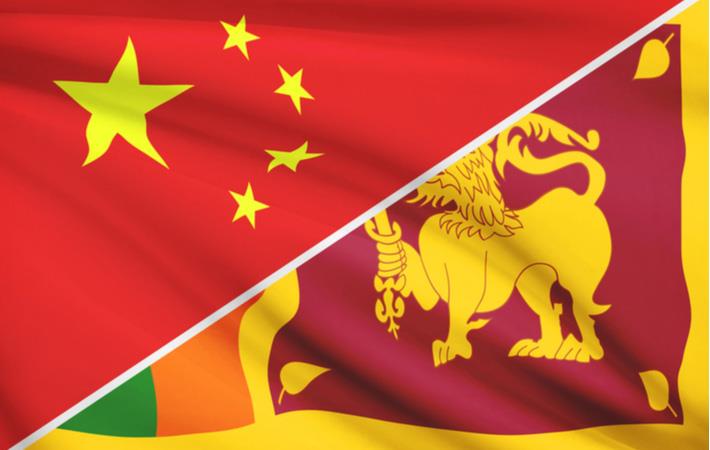Sri Lanka’s left-leaning president-elect Anura Kumara Dissanayake has yet to declare a precise China policy, but was expected to seek “maximum support” from Beijing through foreign direct investment, technology and tourism, according to analysts.
On Monday, Chinese President Xi Jinping congratulated Dissanayake on his election victory on Saturday, hailing bilateral ties as “a good example of friendly coexistence and mutually beneficial cooperation between countries of different sizes” while committing to work with his new counterpart to boost relations.
China’s foreign ministry said it anticipated “new progress” in the strategic cooperative partnership between the countries, based on “sincere mutual assistance and everlasting friendship”.
Dissanayake emerged as the election winner after a second round count with 42.3 per cent of the vote, while his closest rival, opposition leader Sajith Premadasa, won 32.7 per cent.
His election campaign promised tough anti-corruption measures and policies to help the poor, as the debt-ridden South Asian state continues to grapple with a massive economic crisis that has fuelled nationwide unrest.
Dissanayake, 55, leads a socialist electoral coalition – the National People’s Power (NPP) – as well as its main party, the Janatha Vimukthi Peramuna (JVP), a left-wing political group founded six decades ago to spearhead a communist revolution in the postcolonial South Asian state.
Dissanayake has appointed former air vice-marshal Sampath Thuyacontha, who was educated in China, as the new defence secretary.
Observers expected Dissanayake to be pragmatic in dealing with China during his five-year term, during which he is expected to help resuscitate an economy crushed by major policy errors, under-taxation and weak exports. Public debt has also surpassed US$83 billion and inflation soared to 70 per cent.
Dissanayake did not lay out a specific foreign policy position during his election campaign, but it is “highly probable” that he would prefer to work with China over its rival India, according to Priyanga Dunusinghe, an economics professor at the University of Colombo.
“President Dissanayake wants to get maximum support from China to develop Sri Lanka,” Dunusinghe said. “[He] may try to attract Chinese foreign direct investment and tourists to Sri Lanka and look for market opportunities for Sri Lankan exports.”
Since Sri Lanka is a member of China’s Belt and Road Initiative, Dissanayake may try to follow China’s development model, Dunusinghe said, adding that the president-elect might seek support from Beijing to develop digital infrastructure in the country.
Colombo joined the trillion-dollar infrastructure strategy in 2017, with both sides agreeing to cooperate to develop and invest in projects. The belt and road has played a significant role in port projects in Colombo and Hambantota, which Dissanayake has shown “greater interest” in, according to Dunusinghe.
“Dissanayake will be cautious given Indian concerns over closer ties between China and Sri Lanka, and amid recent political developments in the region,” Dunusinghe said, adding that Dissanayake’s predecessor, Ranil Wickremesinghe, applied a balanced approach towards both countries.
However, Colombo-based journalist and researcher Rathindra Kuruwita expected that Dissanayake would “treat China much more warmly” than the previous administrations of Wickremesinghe and Gotabaya Rajapaksa, who he said cosied up to India “at the expense of China”.
“Dissanayake and the NPP have pledged a non-aligned foreign policy, which had served Sri Lanka well in the 1960s and 1970s,” Kuruwita said, adding that Colombo needed Chinese investment to drive its exports and boost its manufacturing industry.
The JVP traces its origins to the pro-China faction of the Sri Lanka Communist Party in the 1960s and, historically, Beijing had tended to strengthen engagement with Sri Lanka when centre-left parties or politicians held power, Kuruwita said.
While increased engagement between Beijing and Colombo was expected, Dissanayake has also stressed maintaining strong ties with New Delhi, with increasing Indian investment a key part of his economic strategy, according to Kuruwita.
“Dissanayake has consistently denied any financial ties to China and reassured both Washington and New Delhi that Sri Lanka will not be used to undermine their security interests,” Kuruwita said.
Kalinga Seneviratne, a Sri Lanka-born researcher at Shinawatra University in Bangkok, said it was “too early to assess” Dissanayake’s diplomacy objectives.
“The main issues for his rural and working-class base was the cost of living, which has skyrocketed, and corruption, which people thought was not sorted out after the Aragalaya in 2022,” Seneviratne said, referring to eight months of protests that erupted as the economy collapsed.
But a widely circulated suggestion that Sri Lanka’s debt crisis was caused by China was not accurate, Seneviratne said.
“About 45 per cent of Sri Lanka’s debts were owed to [international sovereign bond holders] mainly based in the US,” Seneviratne said, adding that Wickremasinghe was pressured by the International Monetary Fund to increase the value-added tax while cutting government subsidies – moves that “hit people hard”.
Kuruwita said China had remained “largely disengaged” from Sri Lanka in terms of investments since the Covid-19 pandemic. The administrations of Wickremesinghe and Rajapaksa had both reneged on commitments under the influence of India, while Beijing shifted its focus to the Maldives, he said.
Source:https://www.scmp.com/


